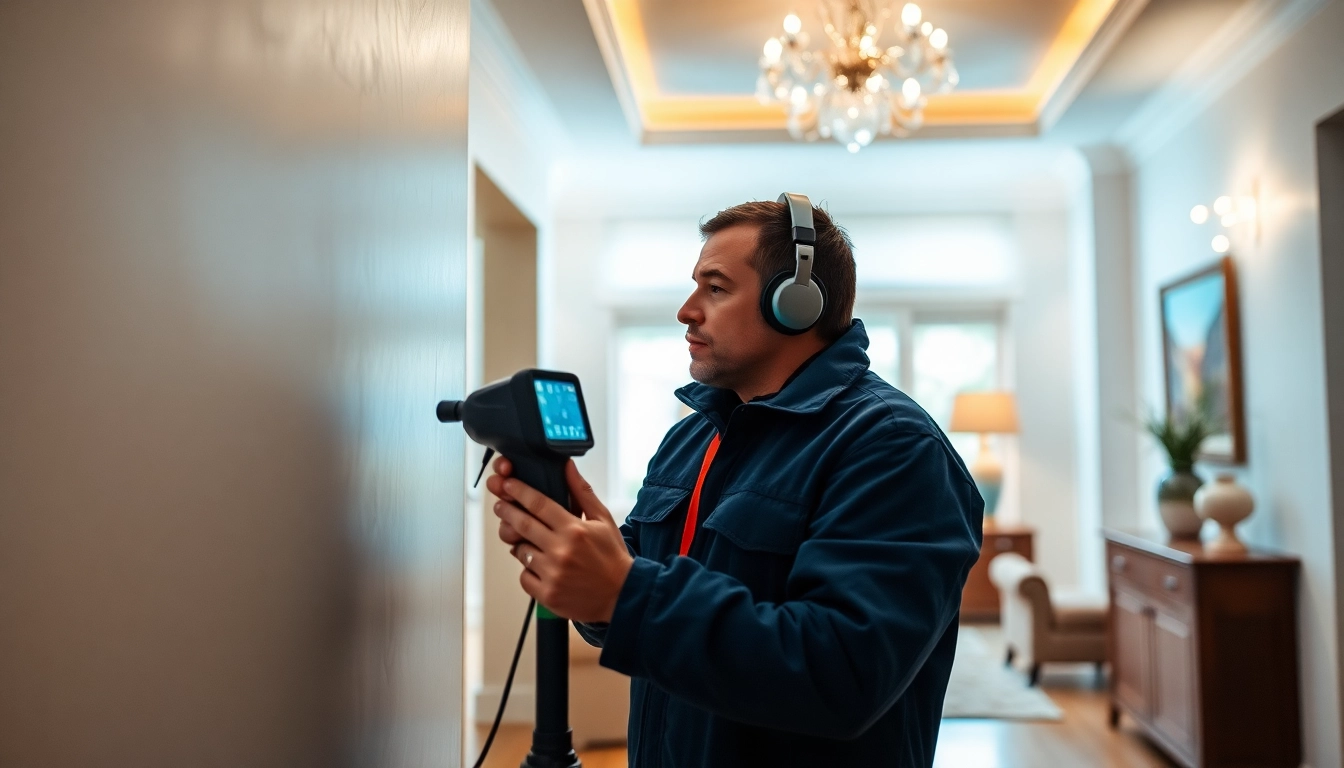Understanding Leak Detection Devon
What is Leak Detection Devon?
Leak detection is a critical service aimed at identifying and addressing unwanted water leaks within various structures, including residential homes, commercial properties, and industrial facilities. In Devon, this service has become increasingly vital due to its potential to prevent severe damage caused by hidden leaks. It encompasses a variety of techniques and technologies designed to locate leaks efficiently and effectively. The goal of Leak Detection Devon is not only to find leaks but also to mitigate the costly damages that can arise if issues are left unresolved.
Importance of Early Detection in Homes
Early detection of leaks is paramount for homeowners. Water leaks, while seemingly benign, can lead to severe structural damage, mold growth, and rising utility bills. When leaks are detected early, the extent of the damage is often minimal, leading to less complicated repairs and lower costs. Moreover, prompt action to resolve leaks helps maintain the integrity of the home, preserve property value, and protect the health of its occupants.
Common Causes of Water Leaks
Water leaks can stem from a multitude of sources. Common causes include:
- Aging Pipes: Over time, pipes can corrode or become brittle, leading to cracks and leaks.
- Faulty Fixtures: Leaky taps, toilets, and appliances can waste significant amounts of water.
- Temperature Changes: Extreme temperature fluctuations can cause materials to expand and contract, leading to cracks.
- Tree Roots: Roots from nearby trees can infiltrate pipes, causing blockages and leaks.
Techniques Used in Leak Detection Devon
Non-Destructive Testing Methods
Non-destructive testing (NDT) is at the forefront of modern leak detection services. These methods allow technicians to identify and locate leaks without causing damage to the structure. Common NDT techniques include:
- Acoustic Listening Devices: These devices detect the sound of water escaping from pipes. Technicians can use headphones to listen for the characteristic sounds of leaks, which provides a precise location.
- Infrared Thermography: This technique identifies temperature differences on the surface of walls or floors, indicating the presence of moisture. It is particularly useful for detecting leaks behind walls or under flooring.
- Tracer Gas Detection: A mixture of hydrogen and nitrogen is injected into pipes. This gas is less dense than air and can escape through leaks, allowing technicians to detect its presence with specialized sensors.
Traditional vs. Modern Leak Detection Technologies
Traditional leak detection methods, such as visual inspections and physical probing, are still used but can be time-consuming and less effective. In contrast, modern technologies provide faster, more accurate results. For example, while traditional methods may rely on guesswork and visible signs, modern NDT methods offer pinpoint accuracy, minimizing the need for disruptive investigations.
How to Choose the Right Technique
Choosing the appropriate leak detection technique depends on various factors, including the type of property, the suspected source of the leak, and the potential impact of the leak itself. Homeowners should consider consulting with leak detection professionals who can assess the situation and recommend the most suitable approach to achieve efficient results.
Signs You Need Leak Detection Devon Services
Visible Water Damage Indicators
One of the first signs that a leak may be present is visible water damage. This can manifest as:
- Discoloration of walls or ceilings
- Peeling paint or wallpaper
- Warped floors or buckled baseboards
These signs, often overlooked, can indicate that a water leak is present, signaling the need for urgent inspection.
Changes in Water Bills
An unexplained increase in water bills is another critical indicator of a potential water leak. If your water consumption has not changed yet your bill shows a significant rise, it may be time to investigate further. Tracking your usage over time can help identify trends and anomalies.
Unexplained Mold Growth
Mold thrives in damp environments, and its presence often signals that a leak exists. Homeowners should be particularly vigilant in areas that are prone to moisture, such as bathrooms and kitchens. If mold is discovered, it’s essential to address the leak and the mold issue promptly to avoid health complications.
What to Expect from Leak Detection Devon Professionals
Initial Inspection Process
During the initial inspection, a leak detection technician will evaluate your property for signs of leaks. This typically involves a thorough visual assessment, looking for any indicators of moisture damage, and may include the use of NDT tools to identify hidden leaks. The process is generally straightforward and non-invasive, lasting several hours depending on the property size.
Report and Recommendations: What’s Next?
After the inspection, the technician will provide a detailed report outlining their findings. This report will include the locations of any detected leaks, the potential causes, and recommendations for repair. Homeowners should review the findings carefully and discuss next steps with the technician to prioritize necessary actions.
Cost Considerations for Services
The cost of leak detection services can vary significantly based on several factors, including property size, location, the complexity of the leak, and the detection methods utilized. Many companies offer transparent pricing and may provide estimates based on initial evaluations. It’s advisable to get multiple quotes and assess the value of the services offered.
Preventative Measures After Leak Detection Devon
Long-Term Maintenance Tips
To effectively mitigate the risk of future leaks, homeowners should adopt long-term maintenance strategies. Regular inspections, especially after adverse weather conditions, can help identify new issues before they escalate. Keeping gutters clean, ensuring proper drainage, and maintaining appliances can significantly reduce the likelihood of leaks.
DIY Leak Prevention Strategies
Homeowners can employ various DIY strategies to prevent leaks, including:
- Regularly checking and tightening faucet fittings
- Installing water alarms that detect leaks early
- Using quality sealants on joints and connections
- Insulating pipes to prevent freezing during winter
When to Schedule Regular Inspections
Establishing a routine schedule for leak detection inspections is a proactive approach that can save homeowners money in the long run. Scheduling inspections annually or bi-annually, especially in areas prone to leaks, can help identify potential issues before they become major problems.
